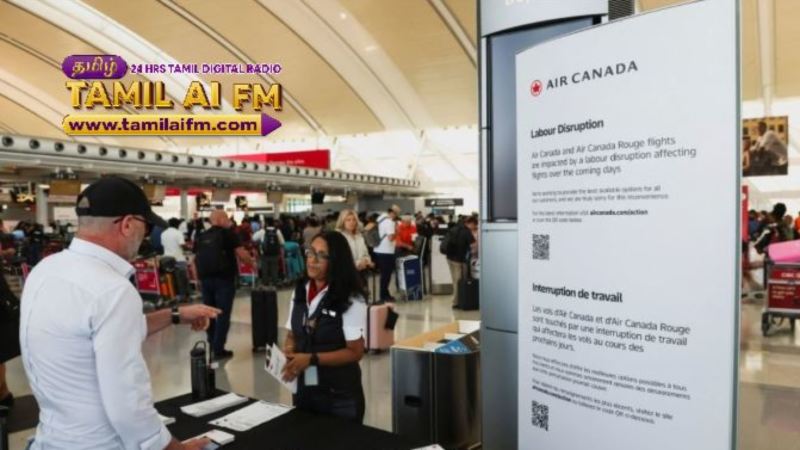MONTREAL — The prospect of a system-wide work stoppage by Air Canada’s unionised flight attendants loomed large yesterday with a strike deadline just hours away, despite a government plea for both sides to return to the bargaining table.
Canada’s largest carrier said in a post on X the operational wind-down due to the impending industrial action led to 623 flight cancellations, impacting 100,100 passengers as of 2000 ET (0000 GMT/8am Malaysian time today) yesterday, hours before a threatened strike today.
The union representing Air Canada’s 10,000 flight attendants urged the minority Liberal government of Prime Minister Mark Carney not to agree to the carrier’s request to impose binding arbitration on both sides.
The union said imposing arbitration would stop the first strike by Air Canada flight attendants since 1985, after contract talks between the two sides stalled over demands for higher wages and compensation for unpaid work.
“The mere prospect of ministerial intervention has had a chilling effect on Air Canada’s obligation to bargain in good faith,” said the Canadian Union of Public Employees.
Patty Hajdu, Canada’s Minister of Jobs and Families, met with Air Canada and the union, urging both parties to “work harder” to reach an agreement.
“CUPE Air Canada Flight Attendants and Air Canada need to stay at the table and resolve this once and for all. It is unacceptable that such little progress has been made,” she said.
After meeting with Hajdu and representatives from Air Canada earlier yesterday, a union spokesperson said: “We’re here to bargain a deal, not to go on strike.”
At Toronto’s Pearson International Airport, the world’s hardest hit yesterday for cancellations, according to FlightAware, Air Canada passengers lined up in front of a desk to ask workers for information about flights.
A strike, which was scheduled to start just before 0100 ET today, would hit Canada’s tourism sector during the height of the summer travel season.
Recording studio owner Robyn Flynn, 38, told Reuters that her yesterday afternoon flight from St. John’s in the province of Newfoundland and Labrador to Montreal had been delayed twice. Despite the inconvenience, she said she backed the attendants.
“They deserve a salary increase... and if our flight gets cancelled, I 100 per cent blame Air Canada, not the flight attendants,” said Flynn, travelling with her three-year-old daughter.
The Canada Labour Code gives Hajdu the right to ask the country’s Industrial Relations Board to impose binding arbitration in the interests of protecting the economy.
Although the board is independent, it routinely agrees to requests for arbitration once it has studied the matter, a process that can take a few days.
The Toronto region Board of Trade called on Ottawa to step in, saying a strike would hurt Canada’s global reputation. Under Justin Trudeau, Carney’s predecessor, the government intervened quickly last year to head off rail and dock strikes that threatened to cripple the economy.
“(Ottawa) might decide to use that, but it’s not as pressing an economic issue for the country as when the railway or the ports were on strike,” said Rafael Gomez, director of the University of Toronto’s Centre for Industrial Relations and Human Resources. “The stakes are not as fraught.”
In a note, TD Cowen analyst Tom Fitzgerald estimated a three-day strike could cost the airline C$300 million (RM914 million) in earnings before interest, depreciation, taxes and amortisation.


